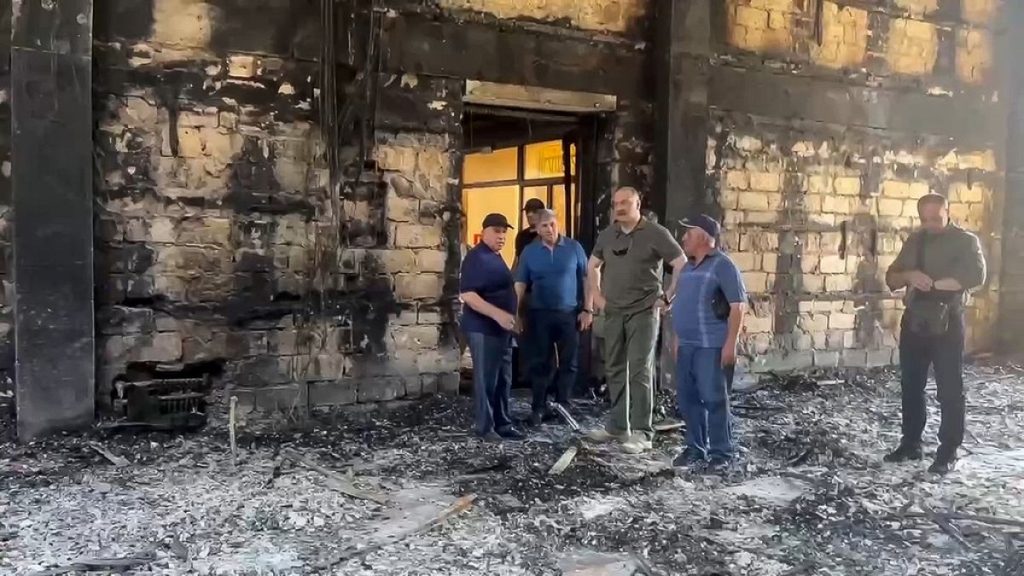More than 15 police officers and several civilians, including an Orthodox priest, were killed by armed militants in Russia’s southern republic of Dagestan. The attack took place in the city of Makhachkala and Derbent, resulting in the deaths of 20 people and injuring another 26. The regional governor, Sergei Melikov, visited the site of the attack and spoke with local Jewish community members. The attackers, who were eventually killed by special forces, targeted a church and synagogue in Derbent before firing at police in Makhackala.
While there was no immediate claim of responsibility for the attacks, the Dagestani governor stated that it was carried out by Islamist “sleeper cells” directed from abroad. The attackers reportedly included the two sons and a nephew of Magomed Omarov, who was detained by police and dismissed from United Russia. This was the deadliest attack in Russia since March, when gunmen opened fire at a concert in Moscow and killed 145 people. The large-scale and coordinated nature of the attack raises concerns about security lapses in the region, known for its diversity but also its longstanding history of violence.
Dagestan is one of Russia’s most diverse but volatile regions, with numerous ethnic groups and languages coexisting alongside a predominantly Muslim population. The area has faced violence since the early 2000s, with insurgents from neighbouring Chechnya being pushed into Dagestan by Russian security forces. Recent unrest in the region has been attributed to a combination of factors, including sympathisers to the Ukrainian cause and Russia’s repression following anti-mobilisation protests. Political and security analysts, such as Harold Chambers, point to a long-term trend of youth radicalisation contributing to attacks like the one in Dagestan.
The violence in Dagestan highlights the challenges faced by Russian authorities in maintaining security in the region. Mobs rioted at Makhachkala’s airport in October, targeting a flight from Israel and injuring more than 20 people. The attack on police officers and civilians in Dagestan underscores the continuing threat posed by Islamist extremists in the North Caucasus region. The attacks have also been linked to Moscow’s military action in Ukraine, although no evidence has been provided to support this claim. The region’s complex history and diverse population add layers of complexity to addressing security concerns.
The coordinated attack in Dagestan raises questions about the effectiveness of Russia’s counterterrorism strategy, which has historically relied on deportation and repression. The ongoing violence in the region underscores the need for a comprehensive approach to addressing the root causes of extremism and radicalisation. Youth radicalisation and unrest in Dagestan point to the challenges faced by Russian authorities in maintaining security and stability in the region. Continued violence and attacks by Islamist militants raise concerns about the potential for further escalation in the North Caucasus and the need for a multifaceted approach to addressing security threats.
The attack in Dagestan serves as a stark reminder of the ongoing challenges faced by authorities in addressing extremism and violence in the region. The diverse population and complex history of the North Caucasus present unique challenges in maintaining security and stability. The deadly attacks in Makhachkala and Derbent underscore the need for a comprehensive and coordinated response to address the root causes of extremism and prevent future violence. The region’s long-standing ethnic and religious diversity adds layers of complexity to addressing security threats, requiring a nuanced approach that takes into account the multifaceted nature of the challenges faced in the region.


